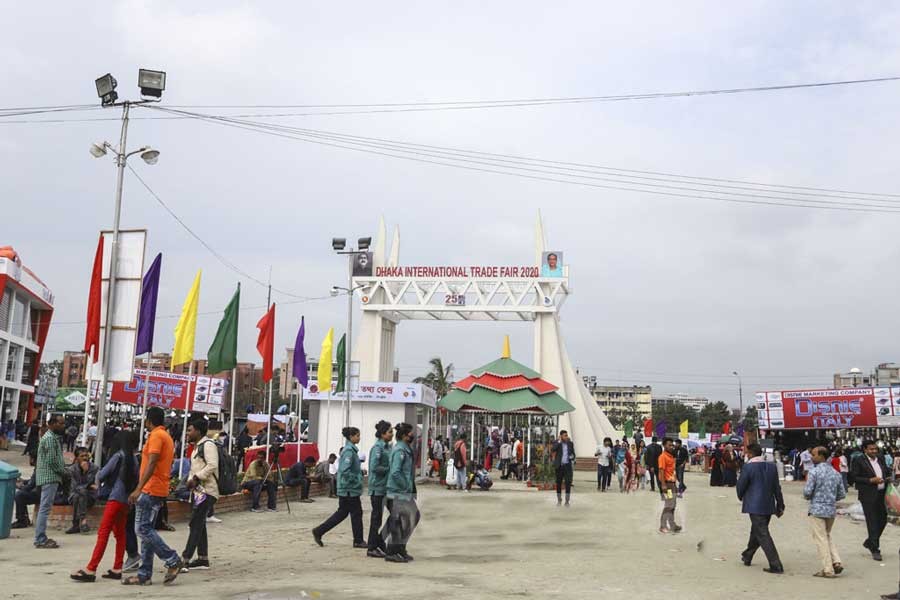Winter has many a treat for the Dhakaites. One of them is the Dhaka International Trade Fair (DITF) where a pleasure outing gets happily blended with commercial interests. People -- mostly families -- often in their best of attire visit the venue in their droves and feast their eyes on the commodities in pavilions either local or foreign. Yes, some companies from abroad have made it a regular representation like annual pilgrimage. The only difference is that they have explored a market here of their products or produces. They have found that the utensils, chinaware, shawls, carpets and even spices they bring here for sale enjoy a high demand.
For the past few years, the weather was fine with no gnawing cold. Even a day or two days' rains temporarily marred much of the visitors' fun and hampered business. However, that was hardly intimidating because the rains at times helped the dust to settle down that earlier kicked off as a result of milling of crowds in their thousands into the fair. This year the city and the country are smarting under prolonged cold waves and it is not an ideal environment for visitor to loiter around in a happy mood in the open. Although, inside stalls and pavilions there is a roof overhead, the moment they get out from one, the hostile weather welcomes them with an icy embrace.
Yet there are incorrigible shopping zealots or young ones who give a damn to such a challenging weather. They would rather enjoy the relative comfort of thin crowds because movement is easier and in nearly empty stalls and pavilions they can take much time to choose their favourite items. What is more, they enjoy the extra attention salesmen, particularly the female among them, pay to them. Not all are, however, compulsive buyers. Some just visit the fair for spending time to appease their romantic cravings. Here young men and women are mostly appointed temporarily for dealing with the extra pressure. Often from universities and colleges, they hone in on their art of convincing customers. Salesmanship gets a boost of suavity and courtesy unlike the artificial of the so-called professionals in the business.
But the real test of salesmanship involves the salesmen and women of foreign stalls and pavilions. Obviously, the greatest hurdle is that of language. In case of the Indian and Pakistani outlets, Hindi or Urdu can be a medium of communication but those languages are not well understood by all. Yet the majority of clientele here can get the essence of the meaning. Only a select band can converse more or less fluently in those languages. Young men and women who are so proficient are sought-after salesmen and salesgirls because in time of non-communication they act as interpreter to save the day for both the salesperson and the customers.
The DITF's strong point or weak point is the retail character of business here. Actually, connoisseurs of cooking look forward to this trade fair for procuring their entire year's spices such as cumin seed, clove, cardamom etc,. The Iranian varieties in particular are in high demand. Heavy crowds in the Iranian pavilion speak for itself. Then some aluminium utensils like cooking pots and pans from some companies also make brisk business.
All this may please the organisers of the trade fair. But actually, this is contrary to the spirit of an international trade fair. Local furniture brands, electronic companies -most of which are of foreign origin or locally assembled -- motor cycle and automobile companies -- except one all of which are foreign -- try to attract customers on the occasion of the DITF. One of the most usually practised formulas is discount. It works, no doubt. But hardly does it elevate the nature of the fair as one of international order. An international trade fair is primarily a display of the products of advanced technology and an exchange of expertise, collaboration and international trade deals.


